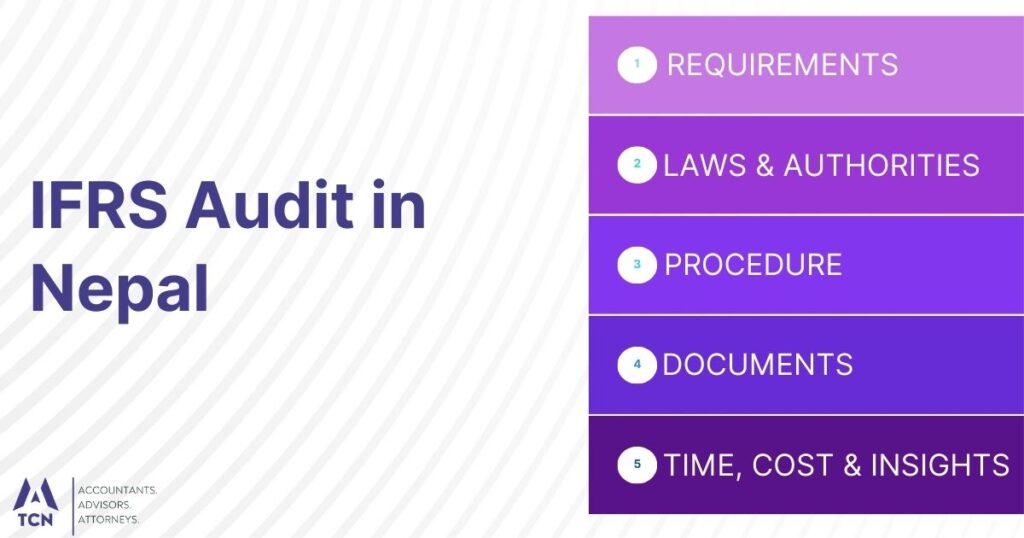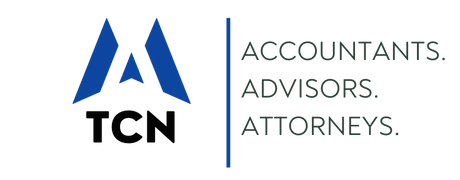An IFRS Audit is a comprehensive examination of an organization’s financial statements to ensure compliance with International Financial Reporting Standards (IFRS). In Nepal, IFRS audits verify that financial reports accurately represent the company’s financial position, performance, and cash flows in accordance with IFRS principles. These audits assess the fairness and transparency of financial reporting, providing stakeholders with reliable information for decision-making.
Why are IFRS Audits important in Nepal?
IFRS Audits play a vital role in Nepal’s financial landscape. They enhance the credibility of financial statements, fostering investor confidence and attracting foreign investment. IFRS compliance enables Nepalese companies to compete globally, facilitating cross-border transactions and partnerships. These audits also promote transparency, reduce financial risks, and support the overall economic growth of Nepal by aligning with international accounting practices.
What is the process for conducting an IFRS Audit?
The IFRS Audit process in Nepal typically involves the following steps:
- Engagement planning and risk assessment
- Understanding the entity and its environment
- Evaluating internal controls
- Performing substantive procedures
- Reviewing financial statements for IFRS compliance
- Gathering audit evidence
- Forming an audit opinion
- Issuing the audit report
Auditors follow International Standards on Auditing (ISA) while conducting IFRS audits in Nepal.
What documents are required for an IFRS Audit?
For an IFRS Audit in Nepal, businesses typically need to provide:
- Financial statements (Statement of Financial Position, Statement of Comprehensive Income, Statement of Changes in Equity, Statement of Cash Flows)
- General ledger and trial balance
- Bank statements and reconciliations
- Accounts receivable and payable aging reports
- Inventory records and valuation reports
- Fixed asset register
- Loan agreements and schedules
- Share capital and shareholding details
- Board meeting minutes
- Significant contracts and agreements
- Tax returns and correspondence with tax authorities
Who is authorized to perform IFRS Audits in Nepal?
In Nepal, IFRS Audits are conducted by licensed Chartered Accountants registered with the Institute of Chartered Accountants of Nepal (ICAN). These professionals must have relevant qualifications, experience, and ongoing training in IFRS and auditing standards. Audit firms authorized by ICAN and registered with the Office of the Company Registrar can perform IFRS audits for companies in Nepal.
How often should businesses undergo IFRS Audits?
Nepalese businesses required to comply with IFRS typically undergo annual audits. Public companies listed on the Nepal Stock Exchange must conduct IFRS audits annually as per regulatory requirements. Private companies may also opt for annual IFRS audits to maintain transparency and attract investors. The frequency may vary based on specific industry regulations or company policies.
What are the key areas examined in an IFRS Audit?
An IFRS Audit in Nepal focuses on several critical areas:
- Revenue recognition
- Financial instruments
- Leases
- Impairment of assets
- Provisions and contingencies
- Employee benefits
- Income taxes
- Property, plant, and equipment
- Intangible assets
- Business combinations
- Fair value measurements
- Segment reporting
- Related party transactions
- Foreign currency transactions
- Financial statement presentation and disclosures
How can businesses prepare for an IFRS Audit?
To prepare for an IFRS Audit, Nepalese businesses should:
- Maintain accurate and up-to-date financial records
- Implement robust internal control systems
- Stay informed about IFRS updates and changes
- Provide staff training on IFRS principles
- Conduct regular internal reviews of financial statements
- Prepare comprehensive documentation for all transactions
- Engage with auditors early to address potential issues
- Ensure timely closure of books and preparation of financial statements
- Review previous audit findings and implement necessary improvements
- Seek expert advice on complex IFRS matters
What are the legal requirements for IFRS Audits?
In Nepal, the legal requirements for IFRS Audits stem from various regulations:
- The Companies Act, 2063 (2006) mandates annual audits for registered companies
- The Securities Act, 2063 (2007) requires listed companies to comply with IFRS
- The Bank and Financial Institutions Act, 2073 (2017) necessitates IFRS compliance for banks and financial institutions
- The Nepal Chartered Accountants Act, 2053 (1997) governs the conduct of audits by chartered accountants
- ICAN’s directives and guidelines on IFRS implementation and auditing standards
Which authorities oversee IFRS Audits in Nepal?
Several authorities oversee IFRS Audits in Nepal:
- Institute of Chartered Accountants of Nepal (ICAN)
- Securities Board of Nepal (SEBON)
- Nepal Rastra Bank (NRB)
- Office of the Company Registrar
- Nepal Financial Reporting Standards Board (NFRSB)
- Accounting Standards Board (ASB)
These bodies collaborate to ensure the quality and consistency of IFRS audits in Nepal.
How do IFRS Audits affect investor confidence?
IFRS Audits significantly boost investor confidence in Nepal by:
- Enhancing financial statement reliability and comparability
- Providing transparent and globally recognized financial information
- Reducing information asymmetry between management and stakeholders
- Facilitating better risk assessment for potential investors
- Improving corporate governance and accountability
- Enabling easier access to international capital markets
- Enhancing the overall credibility of Nepalese businesses in the global arena
What software tools are used in IFRS Audits?
IFRS Audits in Nepal often utilize various software tools:
- Audit management software (e.g., CCH Audit Automation, CaseWare Working Papers)
- Data analytics tools (e.g., IDEA, ACL)
- Financial reporting software (e.g., Oracle Hyperion, SAP BusinessObjects)
- Document management systems
- Risk assessment tools
- Workflow management software
- Cloud-based collaboration platforms
- Specialized IFRS disclosure checklist software
These tools enhance audit efficiency, accuracy, and compliance with IFRS requirements.
How do IFRS Audits differ from local GAAP audits?
IFRS Audits in Nepal differ from local GAAP audits in several ways:
- IFRS audits follow international standards, while local GAAP audits adhere to Nepal Accounting Standards (NAS)
- IFRS audits require more extensive disclosures and fair value measurements
- IFRS audits focus on principle-based accounting, whereas local GAAP is more rule-based
- IFRS audits demand a higher level of professional judgment and expertise
- IFRS audits often involve more complex financial instruments and transactions
- IFRS audits facilitate better comparability with global companies
Internal Controls and Audit in Nepal
Intellectual Property Valuation in Nepal
Gross Margin Calculation in Nepal
What are common challenges in IFRS Audits?
Common challenges in IFRS Audits in Nepal include:
- Limited availability of IFRS-trained professionals
- Complexity of IFRS standards and frequent updates
- High implementation costs for smaller businesses
- Difficulty in fair value measurements in less developed markets
- Lack of industry-specific guidance for certain sectors
- Challenges in translating IFRS concepts to local language and context
- Resistance to change from traditional accounting practices
- Limited access to reliable market data for valuation purposes
- Inconsistencies between IFRS and local tax regulations
- Technological limitations in implementing IFRS-compliant systems
How can startups benefit from IFRS compliance?
Startups in Nepal can benefit from IFRS compliance in several ways:
- Attracting foreign investors by providing globally recognized financial statements
- Enhancing credibility and transparency in financial reporting
- Facilitating easier access to international funding and capital markets
- Improving financial management and decision-making processes
- Preparing for potential future growth and expansion
- Gaining a competitive edge in the global marketplace
- Streamlining financial processes for potential mergers or acquisitions
- Building a strong foundation for long-term financial sustainability
- Aligning with best practices in financial reporting from the outset
- Demonstrating commitment to high-quality financial management to stakeholders
Additional FAQs:
Are IFRS Audits mandatory for all businesses in Nepal?
IFRS Audits are not mandatory for all businesses in Nepal. They are required for public interest entities, including listed companies, banks, and financial institutions. Other companies may voluntarily adopt IFRS to enhance their financial reporting quality and attract investors.
How long does an IFRS Audit typically take?
The duration of an IFRS Audit in Nepal varies depending on the company’s size, complexity, and preparedness. Generally, it can take anywhere from 2 to 8 weeks for small to medium-sized enterprises, while larger companies may require several months to complete the audit process.
What are the consequences of failing an IFRS Audit?
Failing an IFRS Audit in Nepal can lead to:
- Qualified or adverse audit opinions
- Regulatory scrutiny and potential penalties
- Loss of investor confidence and potential stock price decline
- Difficulty in accessing capital markets
- Reputational damage
- Potential legal liabilities
- Required restatement of financial statements
- Increased oversight from regulatory bodies
How do IFRS Audits impact financial statements?
IFRS Audits impact financial statements by:
- Ensuring compliance with IFRS principles and disclosures
- Improving the quality and reliability of financial information
- Enhancing comparability with international companies
- Providing a true and fair view of the company’s financial position
- Identifying and correcting material misstatements
- Increasing transparency through comprehensive disclosures
- Facilitating better understanding of complex transactions and estimates
What training is required for IFRS Audit professionals?
IFRS Audit professionals in Nepal require:
- Chartered Accountancy qualification from ICAN
- Continuous professional development in IFRS and auditing standards
- Specialized IFRS certification programs
- Practical experience in conducting IFRS audits
- Training in industry-specific IFRS applications
- Familiarity with international auditing standards (ISA)
- Soft skills development for effective communication and professional skepticism
How do IFRS Audits contribute to global comparability?
IFRS Audits contribute to global comparability by:
- Applying consistent accounting principles across countries
- Providing standardized financial statement formats
- Enhancing transparency through uniform disclosure requirements
- Facilitating cross-border investments and mergers
- Enabling easier benchmarking against international peers
- Reducing the need for reconciliation between different accounting standards
- Improving the overall quality of financial reporting globally
Get in Touch with Us
Our team consists of Chartered Accountants, Corporate Lawyers and Chartered Financial Analysts. Our Firm is renowned for provide expert legal, tax and financial services. Contact us for Quick Legal and Tax Consultation.
📧 Email: info@taxconsultantnepal.com
📞 Phone: +977 9840993599
📍 Location: Sinamangal Marga, Old Baneshwor, Kathmandu, Nepal
You can contact us via email, contact form, or phone call. We are also available on WhatsApp, Viber, Telegram, and WeChat for your convenience. Feel free to drop your queries, and our professionals will get back to you promptly.


